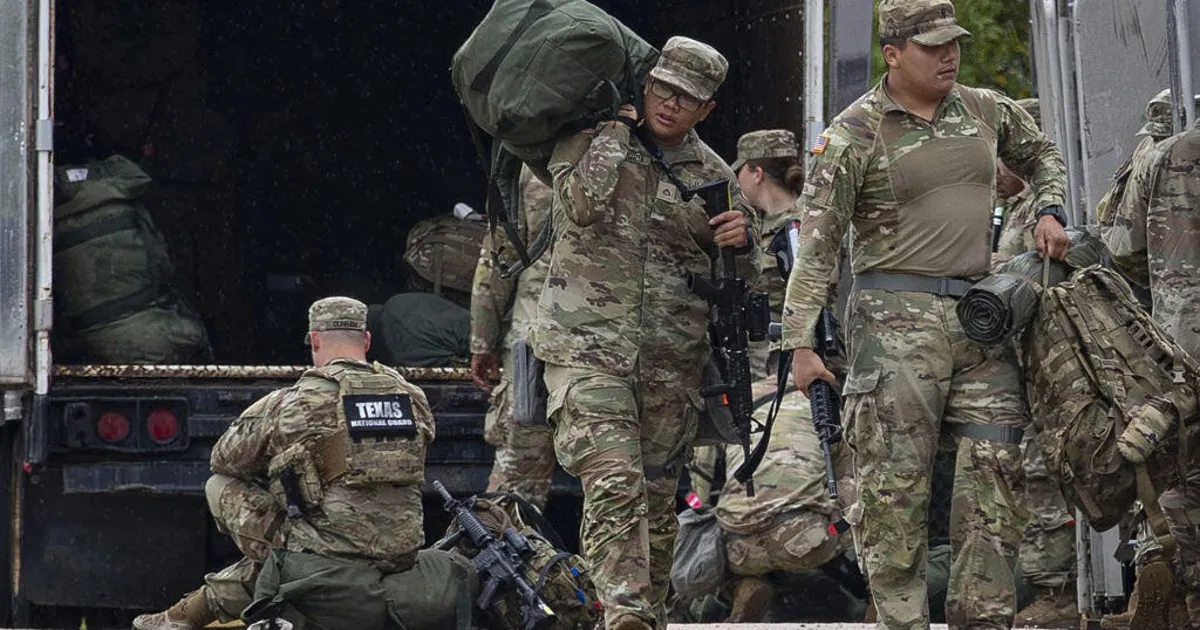
In a significant development, the Trump administration has requested the Supreme Court to authorize the deployment of National Guard members in Illinois. This move sets the stage for a legal confrontation regarding the president's authority to send military troops into states despite opposition from local officials. The Justice Department has filed for an emergency relief, aiming to overturn a lower court order that has previously blocked the federalization and deployment of National Guard troops in the state.
A U.S. appeals court upheld the decision that prohibited the deployment of troops but allowed the Guard to remain under federal control while legal proceedings are ongoing. Solicitor General D. John Sauer articulated the administration's position, stating that the U.S. district court's order undermines the president’s Commander-in-Chief authority and intrudes into military command structures. He emphasized that restricting the deployment of federalized National Guard troops compromises the safety of federal immigration officers and jeopardizes government properties.
As part of this controversial decision, President Trump has called into federal service up to 300 members of the Illinois National Guard to safeguard federal immigration personnel and properties, amidst ongoing protests linked to his administration's immigration policies. Additionally, he has federalized approximately 400 members of the Texas National Guard to provide assistance in the Chicago region.
Sauer argued that the restrictions imposed by the court deprive the Department of Homeland Security (DHS) of crucial protections intended for its officers amid escalating violence. He asserted that this prohibition not only prevents the National Guard from enforcing federal laws but also endangers lives and property in the area.
Mr. Trump has invoked Title 10 of the U.S. Code, which grants the president the authority to federalize National Guard troops when there is a rebellion or a threat of rebellion against the government, or when regular forces are insufficient to enforce federal laws. The administration contends that the protests occurring in cities such as Chicago meet these criteria, thus justifying the president's actions under Title 10.
Illinois officials have expressed strong opposition to the president's decision, arguing that the violence and threats faced by federal law enforcement in Chicago hinder their ability to enforce immigration laws and protect against assaults on federal officers. Governor J.B. Pritzker criticized the federalization of the National Guard, labeling it an un-American act that infringes upon state sovereignty. He reiterated his commitment to defending Illinois against federal overreach.
The state of Illinois and the city of Chicago have initiated legal action against the federal government's decision to federalize the National Guard, asserting that such directives are unlawful. Earlier this month, U.S. District Judge April Perry sided with the state, labeling the DHS's assessment of the situation in Chicago as unreliable. The 7th Circuit Court of Appeals subsequently issued a preliminary order that temporarily blocked the deployment of National Guard troops in Illinois, although they remain under federal control.
In a recent ruling, a unanimous panel of judges maintained that the circumstances do not justify President Trump's actions in Illinois. The judges noted that the protests against the federal government's immigration policies had not escalated to a point that could be construed as a rebellion. They pointed out that federal facilities, including the immigrant processing center in Broadview, have remained operational despite the protests, and local authorities have effectively managed any disruptions.
Clashes surrounding the president's immigration policies have prompted deployments of National Guard members in other cities, including Los Angeles, Portland, and Memphis. A federal appeals court has permitted the deployment of about 4,000 National Guard troops to Los Angeles and is currently considering a similar request for Portland. Furthermore, President Trump has dispatched National Guard troops to Washington, D.C., and has indicated potential deployments to cities such as Baltimore and San Francisco.
The unfolding situation in Illinois not only highlights the tensions between state and federal authority but also raises important questions about the limits of the president's military powers in domestic affairs.